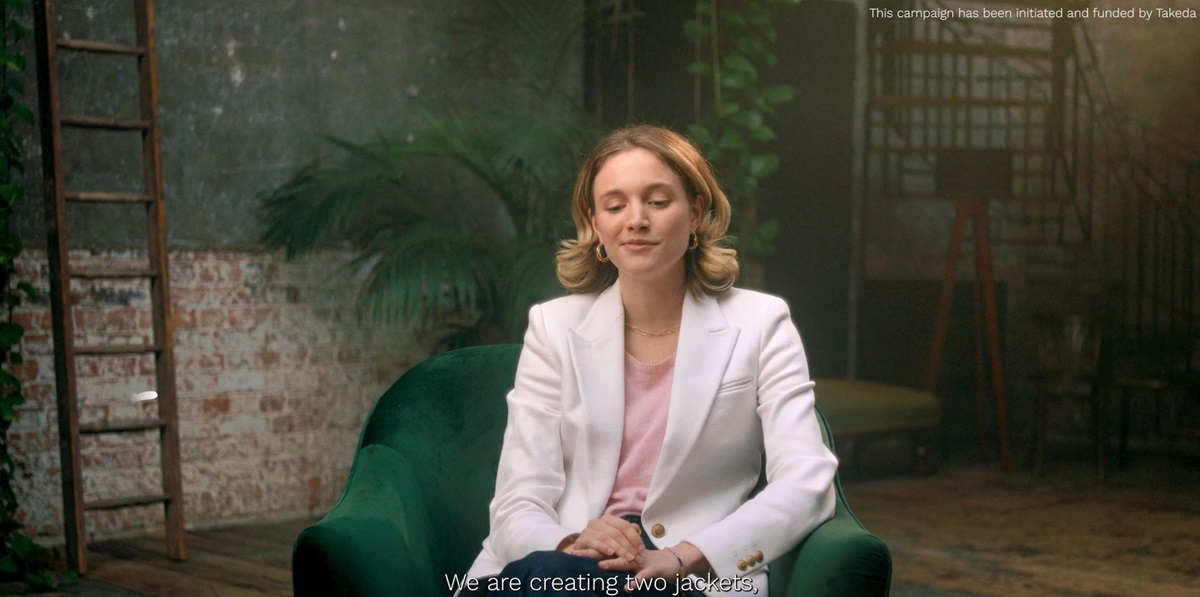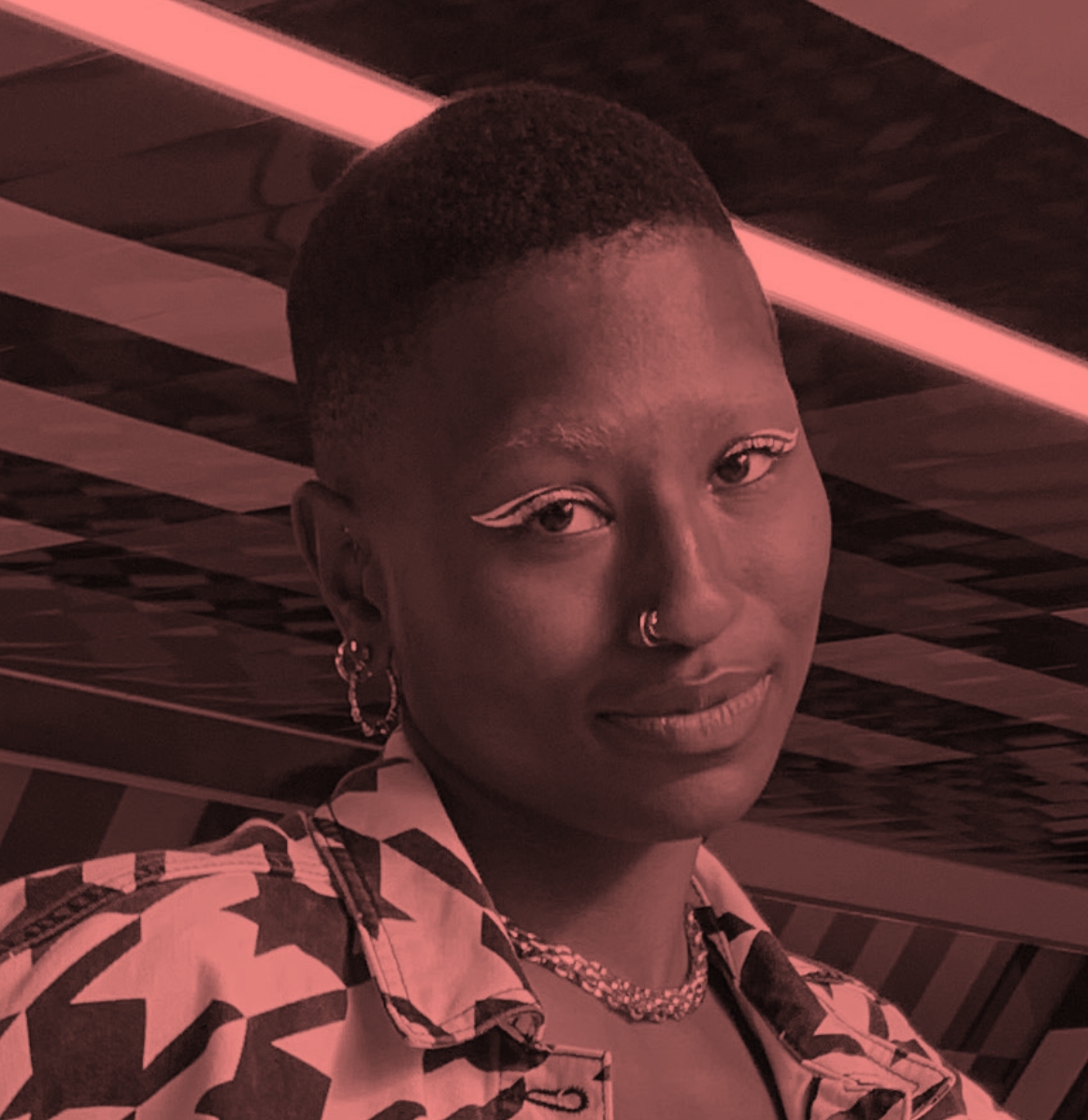68% of women surveyed with ADHD think people with ADHD are at a disadvantage in the workplace.3




ADHD can show up uniquely in the workplace.1,2 Especially for women, who tend to be diagnosed later in life.2
68% of women surveyed with ADHD think people with ADHD are at a disadvantage in the workplace.3
93% of non-binary people surveyed with ADHD think people with ADHD are at a disadvantage in the workplace.3
We believe everyone deserves the right support at work. Watch our film about ADHD in the workplace and explore the stories of those living with ADHD.
83% of women surveyed and 79% of non-binary people surveyed believed there’s a stigma associated with ADHD.3 For women and non-binary people, they can feel like they have to mask their ADHD at work. In fact, 92% of women surveyed say that their ADHD has impacted relationships, 38% stated this was specifically with colleagues.3
Takeda have teamed up with Savile Row tailor, Gormley and Gamble, and Illustrator Ana Jaks to create one-of-a-kind suit jackets that represent the invisible nature of ADHD in the workplace.
On the outside, the suit looks like any other, but the illustrations in the silk lining tell the story of the two ambassadors wearing them, Kim To and Jenny Mclaughlin.
There are a lot of myths around ADHD, which can make us want to hide and being brave enough to be visible through these suit jackets which has my story on the inside is a lovely way to depict what we are trying to do with the Staring Back at Me Campaign.
Learn more about how you can help in the workplace with our helpful resources.
Scroll down for resourcesStaring Back at Me Campaign Ambassador and Project Manager.
You can read more about Jenny’s experience with ADHD here.
Learn more
Queen of the studio, Gormley and Gamble

You can read more from the Staring Back at Me ambassadors and their experience of living with ADHD and the workplace below.
My first full time role, straight out of university tried to be supportive, but it felt like they didn’t understand ADHD is a lifelong condition that doesn’t ‘improve’ naturally, with time. I was open with them about the support I needed but when it came to my end-of-probation review, they extended my probation, put me on a performance review plan.
What my experience has taught me is that everyone is different and should be treated as such. We all have different strengths and it’s so important that employers champion the strengths of their employees so we can all help each other at work.
DE&I isn’t just a buzz phrase and inclusivity isn’t a trend: we have to be truly supportive and inclusive for people like me to thrive at work.
To read Amber’s ADHD story please visit the ambassador page
Learn more
I have ways of managing my ADHD and I love my job! Working flexibly and given trust to get on with it and get things done. Working from home with the choice to use the office if I feel like it. Managing my own workload. I have a good balance now and really enjoy work! I guess at 50 it’s about time!
Ultimately, I think that my experience in the workplace has changed because I changed. I took responsibility for my ADHD. I learned who I was and how I ticked. I understood the tools I’d been given and learned how to use them. It’s liberating to learn why you have struggled to do things for so long and be provided with the knowledge and power to change that.
To read Andrea’s ADHD story please visit the ambassador page
Learn more
ADHD – it gives me certain superpowers. When I find something that truly grabs my interest, I can dive into it with laser-like focus and passion.
It’s like being in a zone where nothing else matters, and I produce some of my best work in these moments of hyperfocus. My brain’s ability to connect seemingly unrelated ideas often leads to creative problem-solving that others might not think of. And when there’s a crisis or fast-paced change, I thrive.
The constant mental shifting that comes with ADHD helps me adapt quickly and stay calm in the chaos.
To read Sally’s ADHD story please visit the ambassador page
Learn more
In my current role my manager has stood out from the rest. She understands the importance of creating an environment in which others and I feel comfortable disclosing things like ADHD and Autism, along with the challenges one can face in the workplace.
I aspire to create my own company, one that would centre stories that promote inclusivity and understanding of difference. I am committed to learning what I need to so I can create my own world.
To read Tshelane’s ADHD story please visit the ambassador page
Learn more
Click our patient organisation partner resources below.
You are about to leave the Staring Back at Me campaign website.
Takeda makes no representation as to the accuracy of the information contained on sites we do not own or control. Takeda does not recommend and does not endorse the content on any third party websites. Your use of third party websites is at your own risk and subject to the terms and conditions of use for such sites.